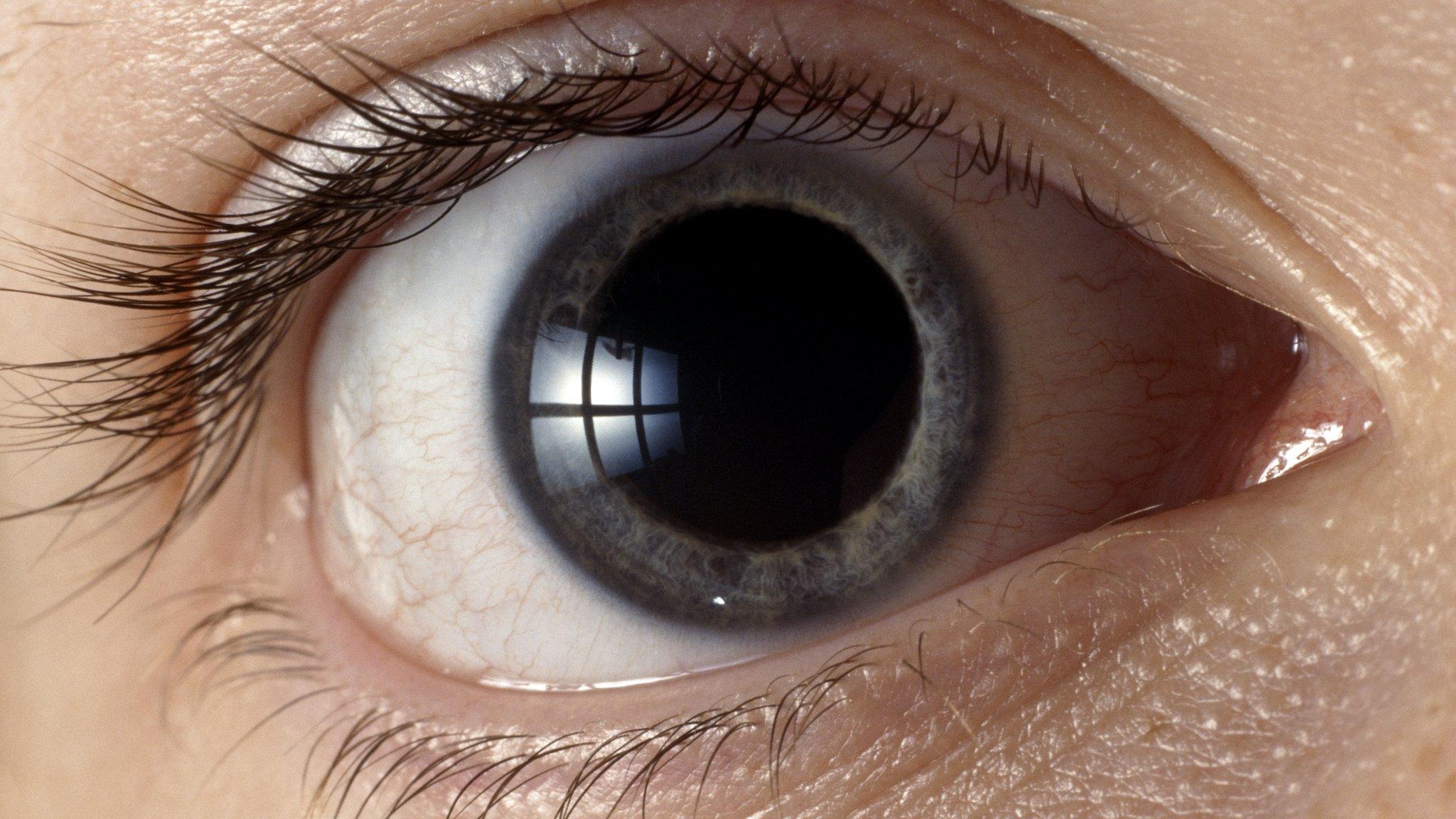Organ transplants: Why are relatives less keen to give the gift of their eyes?
- Published
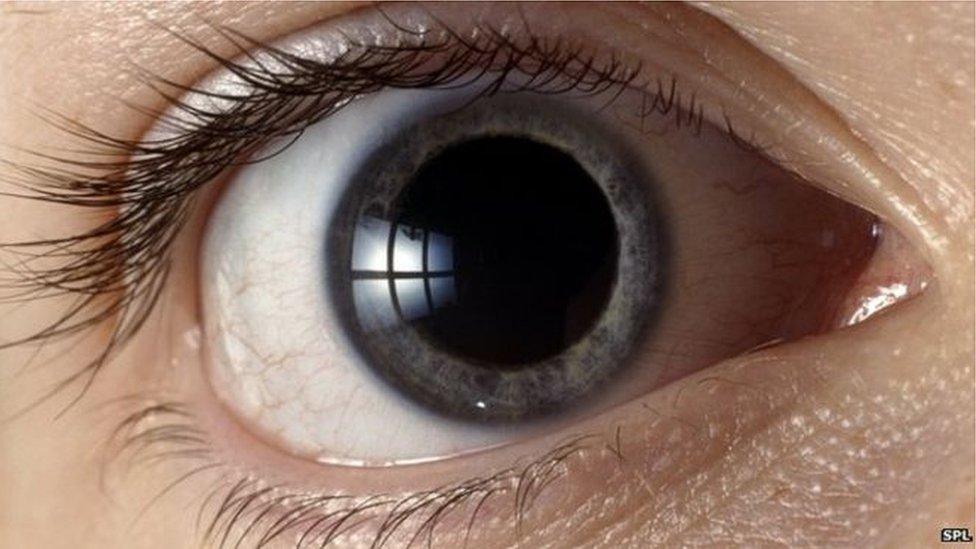
Just 40 corneal transplants are carried out in Northern Ireland each year - offering those who receive them, the gift of a whole new world
Of the hundreds of thousands of people who agree to donate organs every year, there is often one sticking point - the eyes.
While relatives will sign away a loved one's heart or a kidney, they are more reluctant to give their eyes, said Belfast opthalmic surgeon David Frazer.
"I guess that's because everyone knows what the eyes look like," he said.
"People only have a vague idea about livers and kidneys, they think they won't be missed if they are taken."
Some people feel an emotional attachment to their eyes, seeing them as the essence of who they are and that might put be one reason why donation rates are low.
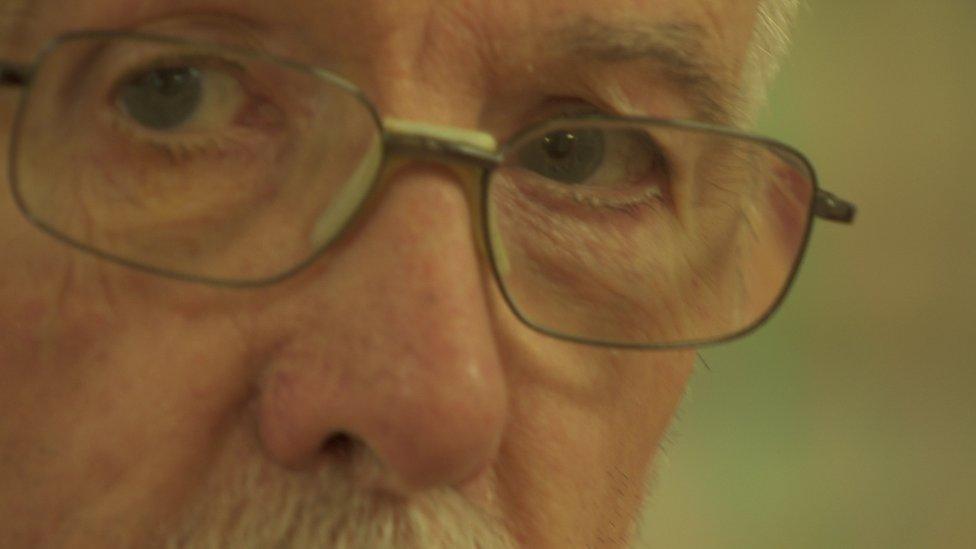
An accident 30 years ago led to eye problems for Charles Bloomer from Belfast
But pensioner Charles Bloomer, 70, who is from Belfast, is counting the value of the gift of a donor's corneas.
Thirty years ago, he damaged an eye while loading a van on the Shetland Islands. The injury has come back to haunt him but a corneal transplant at Belfast's Mater Hospital has brightened his world.
Four thousand corneal transplants are carried out each year in the UK, but just 40 are carried out in Northern Ireland in Belfast's Mater Hospital or Altnagelvin Hospital in Londonderry.
The lack of availability of donor corneas is further hampered by the fact that just 25% of all those donated are health enough to be used in transplants.
Donated corneas are kept in eye banks in Bristol and Manchester. They can only be stored for up to a month after they have been donated.
The operation itself is fast and effective.
"It's a big advantage with a corneal transplant because there are no blood vessels in the cornea - so matching of the corneal graft as you might do before a liver or kidney transplant is not necessary," said Mr Frazer.
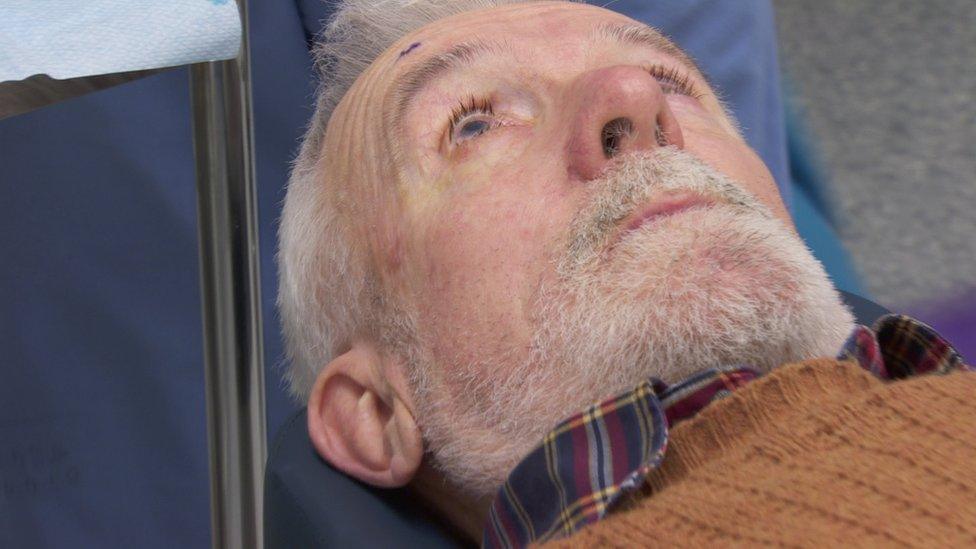
Charles Bloomer on the operating table waiting to receive his transplant
"The only thing we match for is age. We like to use a cornea that is roughly within 10-year age bracket of the recipient."
A cornea transplant can be carried out under general anaesthetic or local anaesthetic.
The procedure usually takes less than an hour and, depending on your circumstances, you either leave hospital the same day or stay overnight.
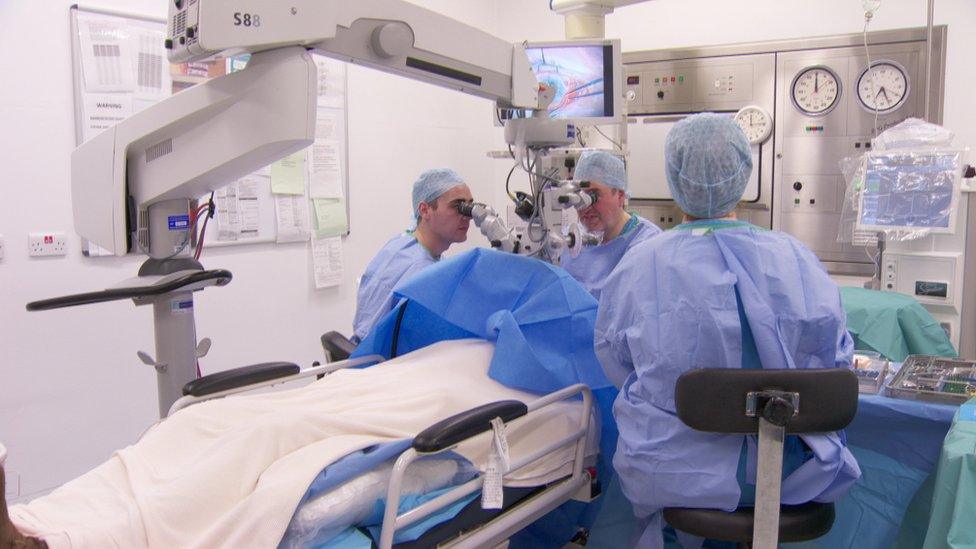
The surgical procedure takes less than an hour
For eye specialists like David Frazer, the message is simple.
"I would appeal to people to donate their eyes," he said. "They are of no use to them after death."
- Published9 March 2016
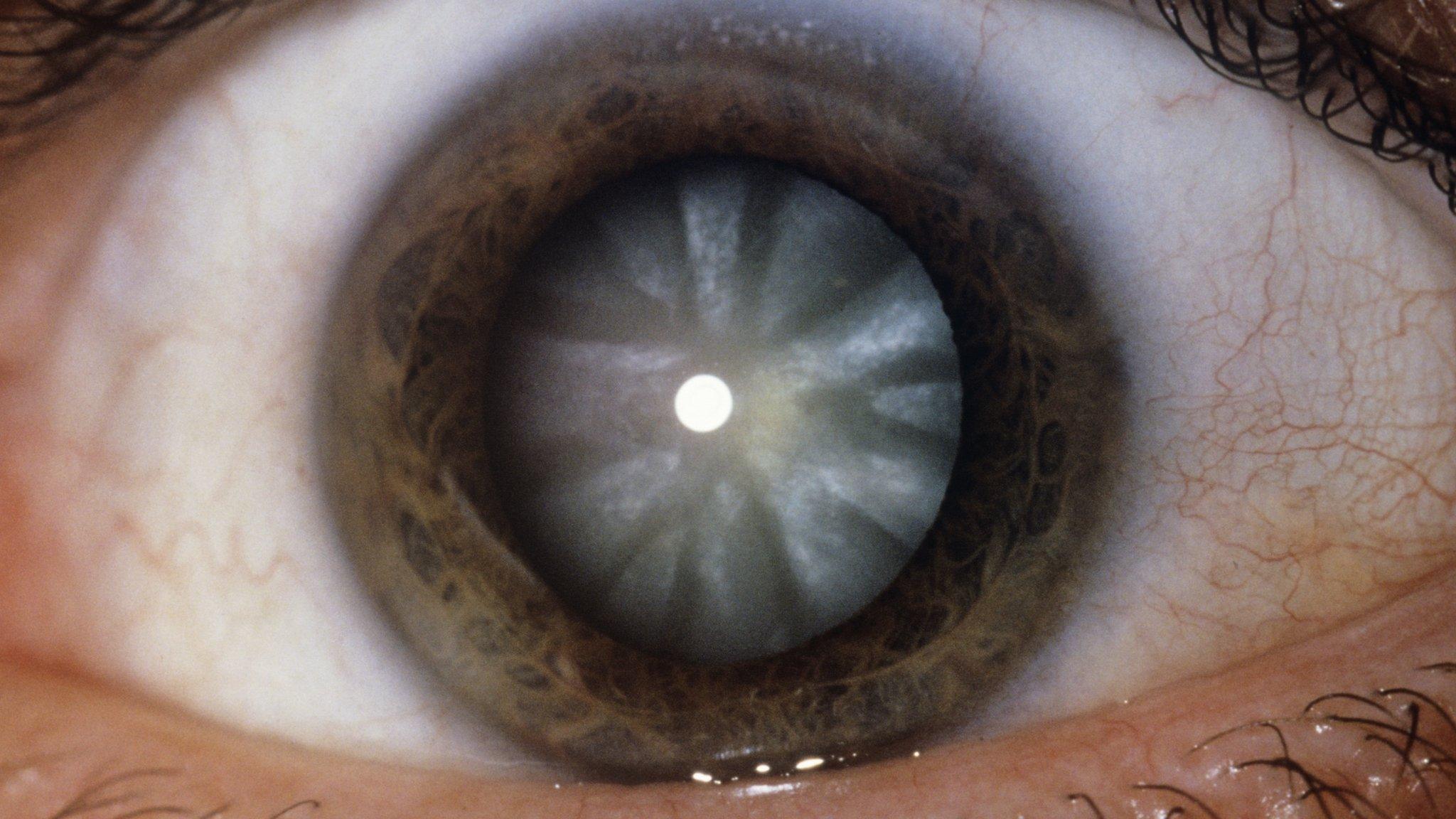
- Published20 February 2014
